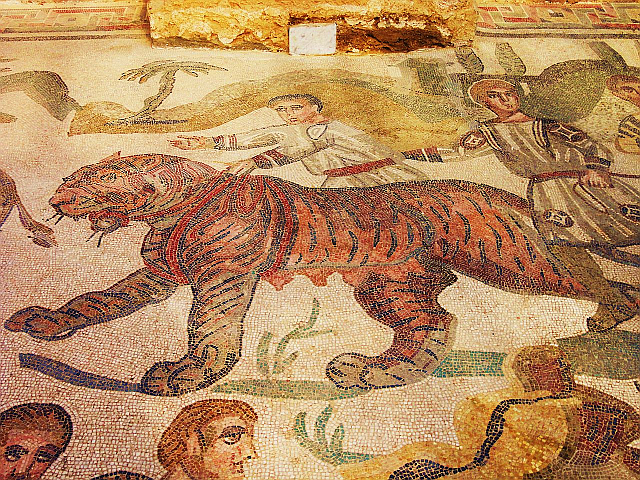Our group meets every other week, but our progress in Paradiso has slowed. The cantos of the theological virtues might seem simpler than some of the earlier, more complexly plotted and allusive work we have already encountered, but no. They are devilishly closely written -- the poet has not lost any steam, or poetic "chops."
A poet who can write a tercet like this is clearly all there:
A poet who can write a tercet like this is clearly all there:
Longfellow tries, but is sensible enough to not attempt the intricate echoes:"Le fronde onde s'infronda tutto l'orto
de l'ortolano etterno, am' io cotanto
quanto da lui a lor di bene è porto.”
It's tempting to see these cantos as somewhat didactic, or pedantically subservient to biblical texts that form the doctrinal elements of the pilgrim's encounters with Peter, James and John. But each canto offers much more than catechetic tedium. The poem, as we've argued here before, never simply states its burden. It acts out its import."The leaves, wherewith embowered is all the garden
Of the Eternal Gardener, do I love
As much as he has granted them of good." (Par. 26:64-66)
A clear example is how all is going well in Paradiso 25, until St. John appears. There's a haunting, uncanny moment of cessation of all Paradise -- likened to a ship whose oarsmen suspend their work. The pilgrim turns to Beatrice only to see he has been blinded by John's revelatory brighness. The canto ends with the pilrim's disorientation and fear. The mettle of his soul's hope is being tested.
Before looking at a couple of passages from Paradiso 26 in detail, it might help to spend a few words tracing a pattern that recurs when reading certain non-obvious parts of this poem.
It seems to me that much of the Commedia - certainly the Paradiso - is written "slant," as Dickenson might say. Certain cantos conjoin elements that, prima facie, have no business going together.
To get to the "fruit" (or frui) within the somewhat dry integumentum of these passages, it never seems to hurt to ask childish questions. This is not a task that the poem marks by drawing attention to itself. Unlike the famous appelli ai lettori (addresses to the reader) that direct us to read beneath the versi strani (Inf. 9.63), a canto like Paradiso 26 at first might not seem enigmatic. It takes a while just to notice its several parts don't quite hang together in ways that, from reading the poem, we have come to expect.
In 26, for example, how is it that some derivative platitudes about the Good and love are interspersed with extraordinary similes (a couple of which we'll look at below)? Of all people, what is Adam doing here? Why does Dante encounter him precisely here, after the pilgrim has "passed" his oral exams and experiences renewed, stronger sight? For that matter, what's with all the numbers and quantitative language in this canto? What does caritate - the greatest of the virtues - have to do with Adam, the fall, the length of time he spent on earth, his language and reflections on it, and the duration of his innocence before being sent into exile? Why are there echoes of Cacciaguida in Adam's conversation, and why does our general father open with one of the poem's strangest hapaxes -- parhelion (107-108) -- a double singularity if you will?
Dante was surely doing something other than showing off, or spinning wheels, or filling space before the big finale. When we come across a canto that seems to lose its thread, or veers to an unexpected close, or combines thematic materials from disparate and seemingly unrelated topoi, it's a good idea to ask why. As the imagination works on the question of how these seemingly unrelated elements connect, the result can be a sudden falling into place, acceding to a perspective from which all these disparate elements suddenly swim into signifying focus, often with an unexpected comic "pop."
The "empirical" pattern of such a reading might go something like:
- naive first reading
- childish questions
- noting unusual linguistic features
- attending to concurrent motifs through the canto
5. careful re-readingAt some point -- usually thanks to the more unusual (often seemingly gratuitous) passages, images, or motifs -- something we'd not fully taken into account, something not properly weighed, or now seen from a different angle, moves into view. Often it's a connection between a highly leaned theme on one hand, and a very basic human, vernacular reality, common to all. The connection can be epiphanic, uncoiling with the impact of comedic surprise.
To attempt to pin down whether we're dealing with a specific genre, or mode, would take us far afield. Let's give it a simple name for now: Wisdom literature. Writing that draws upon all manner of indirection in order to challenge the reader, to drive us to our own hard-won "eureka moments" would be the sign and pleasure of this mode. It might not sing in epic tones, or seduce with lyric music, but it is always working on something that, when finally reached, yields a potent reward.
We'll look next at some moments in Paradiso 26.


